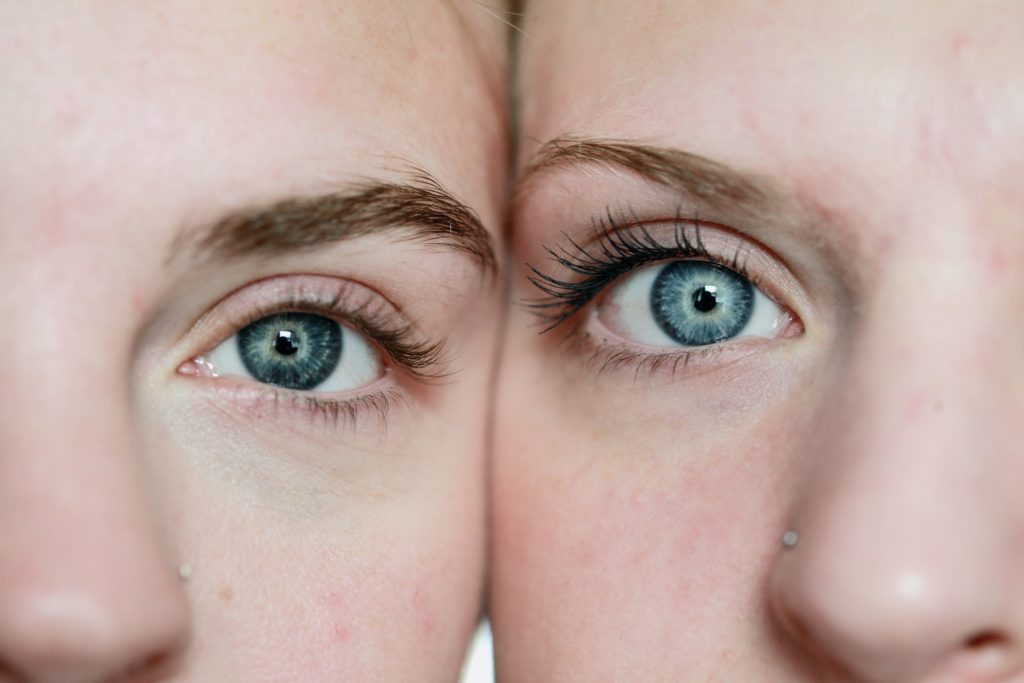If you have ever looked in the mirror and felt like your face was shining brighter than a disco ball, you know the struggle of having oily skin. Dealing with excess sebum production can be frustrating, but the good news is that with the right skincare regime, you can combat oily skin and achieve a fresh, matte complexion.
In this guide, we will explore the causes and effects of oily skin and provide a step-by-step skincare regime to help control the shine.
Understanding Oily Skin
Oily skin is a common skin type characterized by excessive sebum production. Sebum is an oily substance produced by sebaceous glands that help to lubricate and protect the skin.
While a certain amount of sebum is necessary for healthy skin, overproduction can result in an oily complexion that can lead to acne and other skin problems.
Several factors can cause oily skin, including genetics, hormonal changes, and environmental factors such as hot and humid weather.
Hormonal changes during puberty, menstruation, and pregnancy can also contribute to excess sebum production. Certain medications, such as birth control pills and hormone replacement therapy, can also affect sebum production.
Identifying if you have oily skin is relatively easy. Oily skin typically has a shiny appearance, especially in the T-zone area (forehead, nose, and chin).
The pores on oily skin tend to be enlarged and can become clogged with oil, dead skin cells, and other debris, developing blackheads and pimples. Oily skin may also feel greasy and require frequent blotting throughout the day.
The effects of oily skin can be both physical and psychological. In addition to the appearance of shiny skin, oily skin can also contribute to the development of acne, which can leave scars and cause emotional distress.
Oily skin can also make it difficult to apply makeup evenly and cause it to slide off the skin. Those with oily skin may also feel self-conscious and avoid social situations or feel like they must constantly touch up their appearance.
Building Your Skincare Regime to Combat Oily Skin

Building a skincare regime is essential for achieving healthy and glowing skin. Here are the key steps you need to include in your skincare routine:
- Cleansing: Cleansing is the first step in any skincare regime. It removes dirt, makeup, and impurities from the skin, which can clog pores and cause breakouts. Choose a gentle cleanser that suits your skin type, and use it twice daily, morning and evening.
- Toning: Toning helps balance your skin’s pH and removes any traces of dirt or oil your cleanser may have missed. Choose an alcohol-free toner containing skin-loving ingredients like hyaluronic acid or glycerin.
- Moisturizing: Moisturizing is essential to keep your skin hydrated and prevent dryness. Choose a moisturizer that suits your skin type, whether oily, dry, or combination. Apply it twice a day, morning and night.
- Exfoliating: Exfoliating helps to remove dead skin cells, which can clog pores and cause breakouts. Choose a gentle exfoliator that contains ingredients like salicylic acid or glycolic acid, which help to unclog pores and improve skin texture. Use it once or twice a week, depending on your skin type.
- Using Sunscreen: Sunscreen is crucial for protecting your skin from the harmful effects of the sun’s UV rays. Choose a broad-spectrum sunscreen with an SPF of at least 30 and apply it daily, even when it’s cloudy or raining.
Specific Skincare Products for Oily Skin
If you have oily skin, choosing skincare products specifically formulated for your skin type is important. Here are some ingredients to look for and avoid when selecting skincare products for oily skin:
Ingredients to Look for:
- Salicylic Acid: This ingredient is known for its ability to penetrate and unclog the pores. It also has anti-inflammatory properties that can help reduce redness and inflammation.
- Niacinamide: This ingredient helps regulate sebum production, the main cause of oily skin. It also has anti-inflammatory properties that can help reduce acne and improve the skin’s overall texture.
- Zinc: This mineral has been shown to have oil-controlling properties. It also has anti-inflammatory properties that can help reduce acne.
- Clay: Clay-based products, such as masks and cleansers, can help absorb excess oil from the skin.
- Hyaluronic Acid: Although it’s typically associated with dry skin, hyaluronic acid can actually benefit oily skin too. It’s a lightweight, non-greasy ingredient that can help hydrate the skin without adding excess oil.
Ingredients to Avoid:
- Mineral Oil: This ingredient can clog pores and lead to breakouts.
- Alcohol: Alcohol-based products can strip the skin of its natural oils, which can actually cause the skin to produce more oil to compensate.
- Fragrance: Fragrances can irritate the skin and cause inflammation.
- Coconut Oil: Despite its popularity in skincare, it can clog pores and cause breakouts, especially for those with oily skin.
- Heavy, Thick Creams: These creams can be too heavy for oily skin and cause breakouts.
Lifestyle Changes to Help Combat Oily Skin

If you’re struggling with oily skin, it’s important to know that lifestyle factors can play a significant role in managing it. Here are some lifestyle changes that can help combat oily skin:
- Diet: Your diet can directly impact your skin’s health. Eating a diet high in sugar, processed foods, and unhealthy fats can exacerbate oily skin. Instead, focus on eating a balanced diet with plenty of fruits and vegetables, lean protein, and healthy fats like omega-3 fatty acids. These types of foods can help reduce inflammation in the body and improve overall skin health.
- Hydration: Drinking enough water is essential for maintaining healthy and oily skin. When dehydrated, your body produces more oil to compensate, making your skin appear even more oily. Ensure you drink at least 8 glasses of water daily to keep your skin hydrated from the inside out.
- Exercise: Regular exercise can help improve blood flow and circulation, promoting healthy skin. It also helps to reduce stress, which is another factor that can contribute to oily skin. Aim for at least 30 minutes of exercise most days of the week to reap the benefits for your skin and overall health.
- Stress management: Speaking of stress, finding ways to manage it can also help combat oily skin. When stressed, your body produces more cortisol, increasing oil production and leading to breakouts. Try incorporating relaxation techniques like deep breathing, yoga, or meditation into your daily routine to help reduce stress levels.
Additional Tips and Tricks
Additional tips and tricks can help complement a skincare regime for oily skin. Here are some important things to keep in mind:
DIY Face Masks and Treatments:
- Clay masks: These masks help absorb excess oil and impurities from the skin. Kaolin and bentonite clay are great options for oily skin.
- Honey and cinnamon mask: Mix honey and cinnamon powder to form a paste and apply it to your face. Honey is a natural humectant that helps moisturize the skin, while cinnamon has anti-inflammatory properties that can help reduce redness and irritation.
- Aloe vera: Aloe vera gel can help soothe and hydrate oily skin. Apply a thin layer to your face and leave it on for 10-15 minutes before rinsing off.
Dos and Don’ts for Oily Skin:
- Do wash your face twice daily: Cleansing helps remove excess oil, dirt, and impurities from the skin.
- Do use oil-free or non-comedogenic skincare products: These products won’t clog your pores or add extra oil to your skin.
- Do exfoliate regularly: Exfoliating helps remove dead skin cells and prevents clogged pores.
- Don’t skip moisturizer: Even oily skin needs hydration. Look for lightweight, oil-free moisturizers.
- Don’t over-wash your face: Overwashing can strip your skin of its natural oils and cause it to produce even more oil.
When to Seek Professional Help:
If your oily skin is causing persistent problems such as acne, cysts, or inflammation, it’s important to seek professional help. A dermatologist can help diagnose and treat any underlying conditions and recommend medical-grade skincare products or procedures that can help control oily skin.
Conclusion
Oily skin can be challenging, but it can be managed effectively with the right skincare regime. You can keep your skin healthy and radiant by understanding the causes of oily skin and building a personalized skincare routine that includes cleansing, toning, moisturizing, exfoliating, and sunscreen.
Additionally, lifestyle changes such as eating a healthy diet, staying hydrated, exercising regularly, and managing stress can help combat oily skin. With patience and consistency, you can achieve a balanced and glowing complexion that will leave you feeling confident and beautiful.
Always seek professional help if needed, and don’t forget to pamper yourself with a relaxing DIY face mask or treatment occasionally. By caring for your skin, you are investing in your overall health and well-being.
Frequently Asked Questions (FAQs) on Skincare Regime to Combat Oily Skin
1. What is oily skin, and what causes it?
Oily skin is characterized by excess sebum production by the sebaceous glands. Genetics, hormonal changes, stress, and certain medications can cause this.
2. How do I know if I have oily skin?
You can tell if you have oily skin and if your face looks shiny and greasy. You may also experience enlarged pores, acne, and blackheads.
3. What is the best skincare regime for oily skin?
A good skincare regime for oily skin should include cleansing, toning, moisturizing, exfoliating, and sunscreen. You should also look for products that contain ingredients like salicylic acid, benzoyl peroxide, and alpha-hydroxy acids.
4. Should I use a moisturizer if I have oily skin?
Yes, you should still use a moisturizer if you have oily skin. Look for a lightweight, oil-free moisturizer that won’t clog your pores.
5. How often should I exfoliate if I have oily skin?
Exfoliating oily skin is recommended once or twice a week to help remove dead skin cells and unclog pores. However, be careful not to over-exfoliate, as this can irritate your skin and cause more oil production.
6. Can I use face masks on oily skin?
Yes, face masks can be beneficial for oily skin. Look for masks that contain ingredients like clay or charcoal, which can help absorb excess oil.
7. Can I make any lifestyle changes to help combat oily skin?
Yes, maintaining a healthy diet, drinking plenty of water, exercising regularly, and managing stress can all help improve the appearance of oily skin.
8. When should I seek professional help for my oily skin?
If your oily skin is severe and causing significant discomfort or self-consciousness, it’s recommended to seek professional help from a dermatologist. They can recommend prescription-strength treatments or procedures like chemical peels or microdermabrasion.